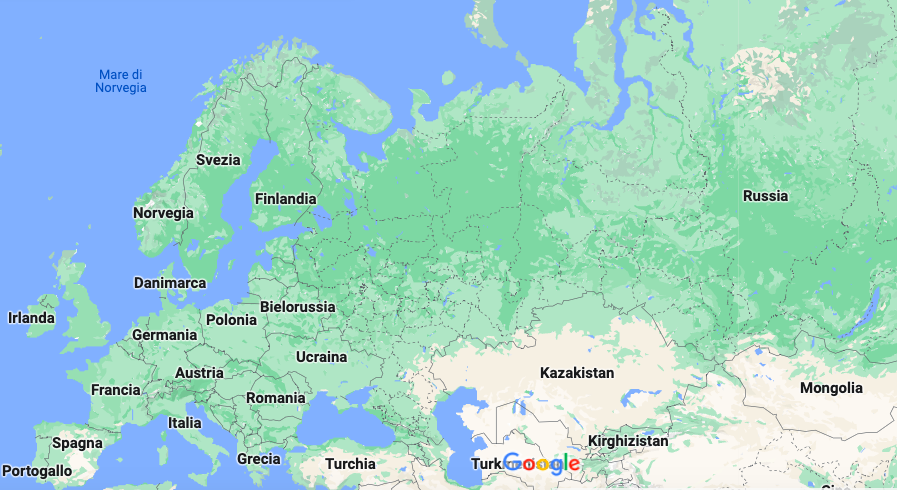“Energiewende” in Germania: costi ed effetti
A little over a year since Germany's about-face on energy, it is time to weigh
up the effects it has had. In May 2011, the Ethics Commission,
appointed by the Government of the
Federal Republic of Germany in the
aftermath of Fukushima, “advised”
a rapid abandonment of nuclear energy.
Already in the Commission’s
final report, however, attention was drawn to the possible economic consequences. Today it is time to
reflect on these and to analyze
the German energy turnaround.
What consequences are there in economic, social and geo-political terms? And also: Why is the German photovoltaic
miracle over?
In the autumn of 2010, Chancellor
Angela Merkel and
her Vice Chancellor Guido Westerwelle triumphantly announced
their energy program: the abandonment of
the energy program of the Red-Green
government of Gerhard Schroeder
and the continuation of the use of
nuclear energy until 2036. Just
five months after this announcement,
the incident at Fukushima and the
regional election (in which environmental issues monopolized the political discussion) forced a jackknife in policy. The German government backed
down, it announced the abandonment of nuclear energy, as the
Ethics Commission had suggested, and, today, Germany has
already shut down some of the seventeen nuclear reactors. By 2022 the Federal
Republic of Germany will
completely abandon this energy source. Between
the nuclear energy exit policy of Schröder and Fischer (Ausstieg I) and that of Merkel and Westerwelle
(Ausstieg II) there
is apparently no substantial
difference. Ausstieg I in 2000 indicated that each reactor could remain
active for up to thirty-two years.
The former project included a possible
and desirable (but not certain!) abandonment of nuclear energy in 2022. Ausstieg I was not,
moreover, a real reform or rethinking of energy
policy. There was no real program
to replace the production from nuclear energy with
other energy sources. This
was not possible because, at the time, the ideological struggle between supporters and opponents of nuclear energy was very
lively and this prevented a
serious ideological and public discussion on the subject. The latter project (Ausstieg II) established 2022
(in some cases even 2021) as a firm date
for the abandonment of nuclear power.
This decision marked a difference to the previous government in that it put an end to the ideological war between supporters and opponents of nuclear energy. In Germany, at the time the government took this decision, the majority of citizens were in favor. They were conditioned, of course, by the
images of Fukushima to such an
extent that many analysts have come to argue, rightly,
that, apart from Japan, the major effects of
the Japanese earthquake were, paradoxically,
in Germany.
Now, the Merkel government’s decision to change its energy policy, which
was taken during the very long night between 29 and 30 May 2011, determined the
final end of nuclear power by 2022, the achievement by 2020 of energy
production from renewable sources equal to 35 per cent and the reduction of CO2
emissions. In this sense Ausstieg II, compared to Ausstieg I, is an attempt to
reform the energy policy of Germany. Angela Merkel has presented this program
as a challenge to the international community but also as a great opportunity
for future generations. This decision, apart from the fact that it disturbed
some allies of the ruling coalition, was not appreciated by some neighboring
countries, first of all France, which has criticized Germany’s choice. As we
will see Angela Merkel and her
government’s about-turn on energy is now anything but a success.
In order to understand where and why Germany’s
about-turn has stalled, we need to see which nuclear reactors were shut down
last year and which are still active. [...]
In conclusion: making laws is relatively easy.
Building electricity grids and wind farms is much more difficult. Planning an energy policy in the medium to long term
is extremely complex and
difficult. Today, Germany is paying for the hasty decisions
of the past. Between 2000 and 2011
the Berlin government changed its energy
policy three times: first deciding to give up nuclear energy, then to invest in nuclear power and last year, again, to
abandon it. In a federal country
like Germany, as noted by Jasper von Altenbockum
in the Frankfurter
Allgemeine Zeitung (16.3.2012), the result has been that each state of the Federal Republic of Germany has been
working on its own energy program.
In Germany chaos appears to reign and
the result is that the Germans,
according to a survey by the Allensbach-Institut, are losing interest in Energiewende.
In the summer of last year, Karsten Polke-Majewski in Zeit
(06.30.2011), commented, enthusiastically supporting the abandonment of nuclear power, that Germany was undertaking a great experiment: one of the leading world
economies was trying to do without the atom. Today,
perhaps we can not say categorically that that experiment has failed, but certainly the
costs are now excessive and it remains to be seen how successful the experiment
will be. (L'intero articolo è possibile leggerlo sul numero 17 della rivista Longitude.)
Ubaldo Villani-Lubelli




Commenti
Posta un commento